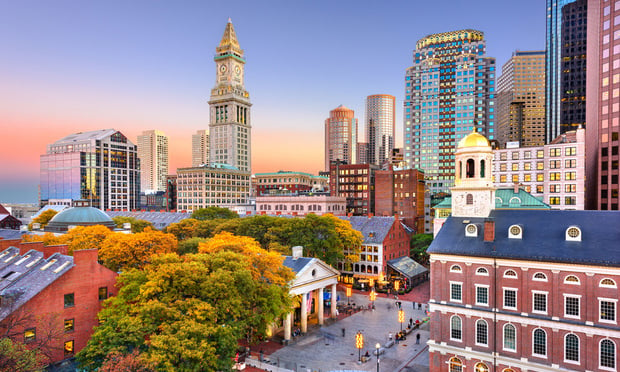The complex, to be built on the 242-acre former site of the Waverly Oaks Golf Course, would be the largest film and television studio complex in the Northeastern United States, according to developer Plymouth Rock Studios, Plymouth Rock, MA.
"Movies are the only recession-proof industry," DiLorenzo says. "During tough times, people are looking for entertainment. We're building a studio that will not just produce movies, but television, commercials, video games and music."
DiLorenzo says it would be the first LEED-certified studio in the US, but for sure it would be the first LEED-certified studio campus in the world, and the first built with a smart technology infrastructure. When complete, the project will consist of 14 sound stages and a 10-acre back lot, plus production offices, post-production facilities, a theater, 600,000 square feet of office space, a hotel, and 100,000 square feet of retail.
"The draw of the studio has been the reason we've been able to pre-lease 65% of the space," DiLorenzo says.
In a sense, creating a one-stop shop for film production already is green, reducing or eliminating the need to travel to locations or to find pre- or post-production facilities. Digital filmmaking also is more sustainable, using fewer resources for transporting and producing the work itself. Including office and hotel space into the production facility, with retail to serve both, also will reduce the need for transportation, DiLorenzo says. The location, too, will help filmmakers.
Since 2006, the Commonwealth of Massachusetts has offered a 25% film tax credit to draw film, TV, and other video production to the state. Since the credit's implementation, some $676 million in direct spending on film and television production generated, according to the Massachusetts Department of Revenue (DOR). That figure is over $100 million higher than the agency predicted in its March 2008 report. When DOR's "ripple effect" multiplier is factored in, the total economic output tops $870 million.
"In Plymouth, we have diverse architecture, and access to international airports, all making Massachusetts an alternative to California," DiLorenzo says.
Plymouth Rock Studios, however, will aim to benefit the local environment in other ways. The project, designed by Gensler, will include a number of sustainable elements both in its layout and technology with a goal of carbon neutrality, according to the developer. The complex will pursue a minimum LEED Silver certification under the Core and Shell category for Campus Development, according to the developer.
Design elements are still being planned, but the developer has said it will strive to use regional materials in construction and even later in food served in the commissary. At least 50% of the golf course clubhouse will be reused, as will parts of other existing buildings on the site. Plans call for diverting 75% of construction waste away from a landfill. Bicycle paths, pedestrian walkways and electric carts will connect the different elements of the campus to reduce automobile transportation.
Individual soundstages and other buildings will be green as well: systems under consideration are rooftop photovoltaic cells, geothermal wells and cogeneration of power. Other elements, such as structured parking, green roofs, white roofs and landscaping will help reduce the heat island effect.
Low-flow plumbing fixtures, waterless urinals, and dual flush toilets are being considered for water conservation, and rainwater capture will be the primary source of irrigation, according to the plans filed with Plymouth Planning Board. Pervious pavement and green roofs also are being incorporated into the project.
In Mid-June, the Plymouth Planning Board unanimously approved the project's master site plan. The project is nearly permitted, and DiLorenzo is continuing to search for equity investment. The senior debt financing is 98% closed, he says. The project is progressing.
"Now that the master site plan has been approved, Plymouth Rock Studios will continue work on the site specific aspects of the project with the Planning Board such as individual building designs," says Plymouth Rock Studios CEO Earl Lestz in the vote announcement. "We anticipate having our first hearing with the Planning Board regarding the design of our soundstages and office buildings by the end of the summer."
Want to continue reading?
Become a Free ALM Digital Reader.
Once you are an ALM Digital Member, you’ll receive:
- Breaking commercial real estate news and analysis, on-site and via our newsletters and custom alerts
- Educational webcasts, white papers, and ebooks from industry thought leaders
- Critical coverage of the property casualty insurance and financial advisory markets on our other ALM sites, PropertyCasualty360 and ThinkAdvisor
Already have an account? Sign In Now
*May exclude premium content© 2024 ALM Global, LLC, All Rights Reserved. Request academic re-use from www.copyright.com. All other uses, submit a request to [email protected]. For more information visit Asset & Logo Licensing.








